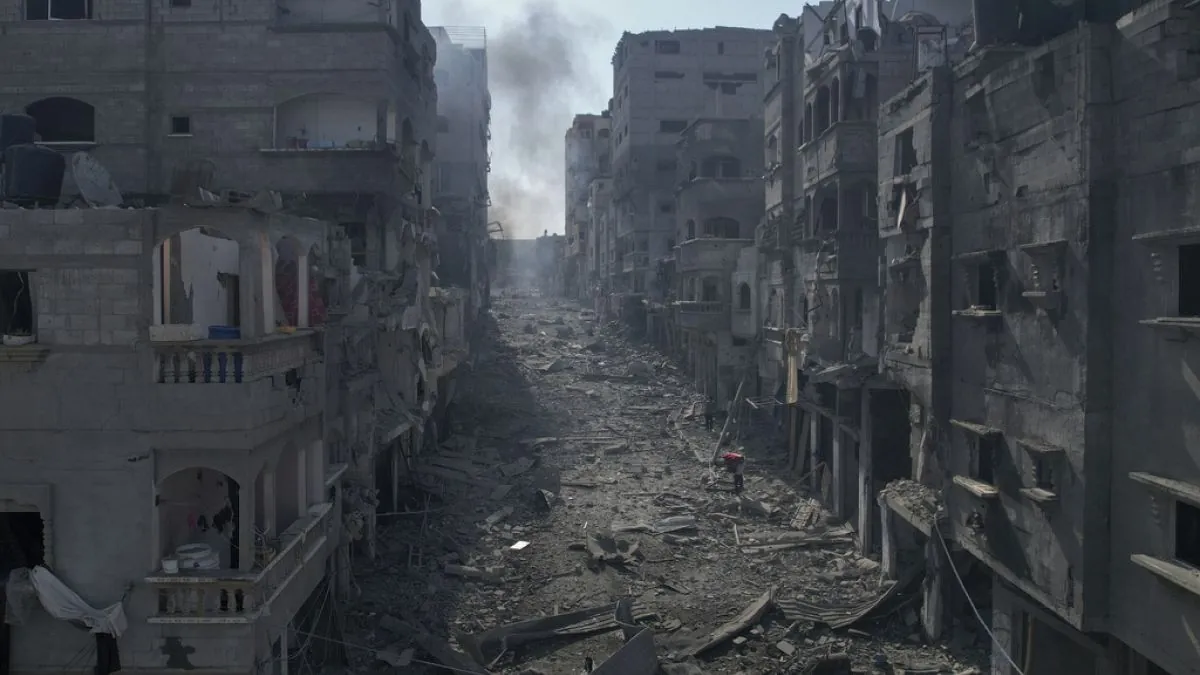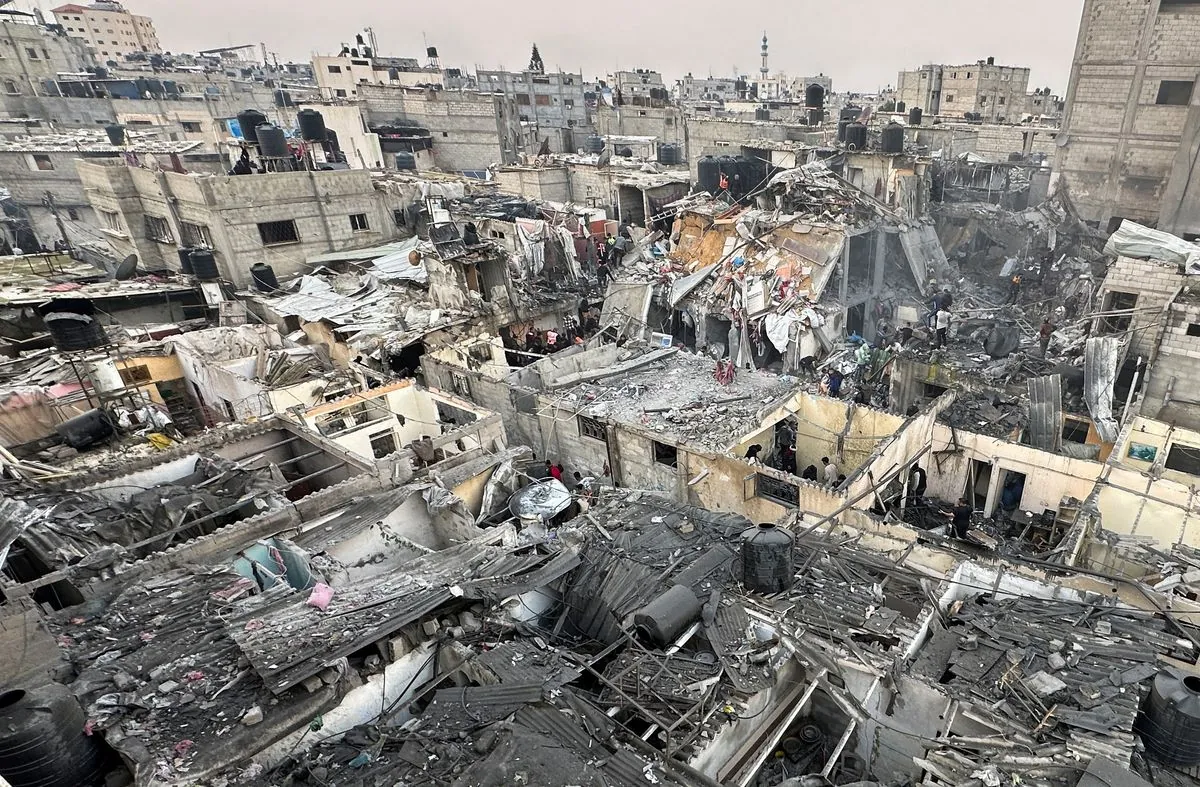Israeli Strikes in Gaza Escalate as Ground Operation Begins in Lebanon
Israeli airstrikes in Gaza kill 21 Palestinians amid intensified fighting. Israel launches ground operation in Lebanon against Hezbollah, raising concerns of broader regional conflict.

In a significant escalation of regional tensions, Israeli forces have conducted airstrikes in Gaza while simultaneously launching a ground operation in Lebanon. The events, occurring nearly a year after the outbreak of the Gaza war, have heightened fears of a broader Middle Eastern conflict.
Israeli airstrikes in Gaza have resulted in at least 21 Palestinian casualties, according to local medical sources. The Israeli military claims to have targeted Hamas command centers, continuing its offensive against the group that governs the densely populated coastal enclave.

The Gaza Strip, one of the world's most densely populated areas, has been under a strict blockade by Israel and Egypt since 2007. With a population of 2.3 million, the territory faces severe challenges, including high unemployment rates and critical shortages of water and electricity. The ongoing conflict has exacerbated these issues, displacing the majority of Gaza's residents and causing widespread destruction.
In Nuseirat, one of Gaza's eight historic refugee camps, two Israeli strikes on residential buildings reportedly killed at least 13 people, including women and children. Another strike targeted a school sheltering displaced families in Gaza City's Tuffah neighborhood, resulting in at least seven fatalities. The Israeli military stated that the school strike was aimed at a Hamas command center, accusing the group of using civilian facilities for military purposes – a claim Hamas denies.
"The air strike targeted Hamas militants operating from a command centre embedded in a compound that had previously served as Al-Shejaia School."
As the conflict in Gaza approaches its first anniversary on October 7, 2024, the situation remains dire. The territory, measuring 41 km long and 6-12 km wide, has been the site of several major conflicts since 2008. Despite its challenges, Gaza boasts a high literacy rate of over 96% and is home to several universities and colleges.
Simultaneously, Israel has initiated a ground operation in Lebanon, engaging in intense combat with Hezbollah, an Iran-backed militant group. This development follows devastating Israeli airstrikes against Hezbollah's leadership and represents a significant expansion of the conflict beyond Gaza's borders.
The escalation threatens to draw in regional powers, potentially involving the United States and Iran. Hezbollah has been firing rockets into Israel for nearly a year in support of Hamas, its ally in the Gaza war.
The conflict's origins trace back to October 7, 2023, when Hamas launched an attack on Israel, resulting in approximately 1,200 Israeli casualties and over 250 hostages. In response, Israel initiated a military campaign that has devastated Gaza, leading to more than 41,600 Palestinian deaths, according to Gaza health authorities.
As the international community's attention shifts to Lebanon, some Palestinians express concern about a prolonged conflict in Gaza. The territory, with its 40 km coastline and rich archaeological heritage, faces not only the immediate threats of war but also long-term environmental challenges, including pollution and erosion.
The complex situation in Gaza is further complicated by the presence of an extensive network of tunnels, used for various purposes throughout the territory. As the conflict continues, the future remains uncertain for Gaza's predominantly young population, with a median age of just 18 years.


































